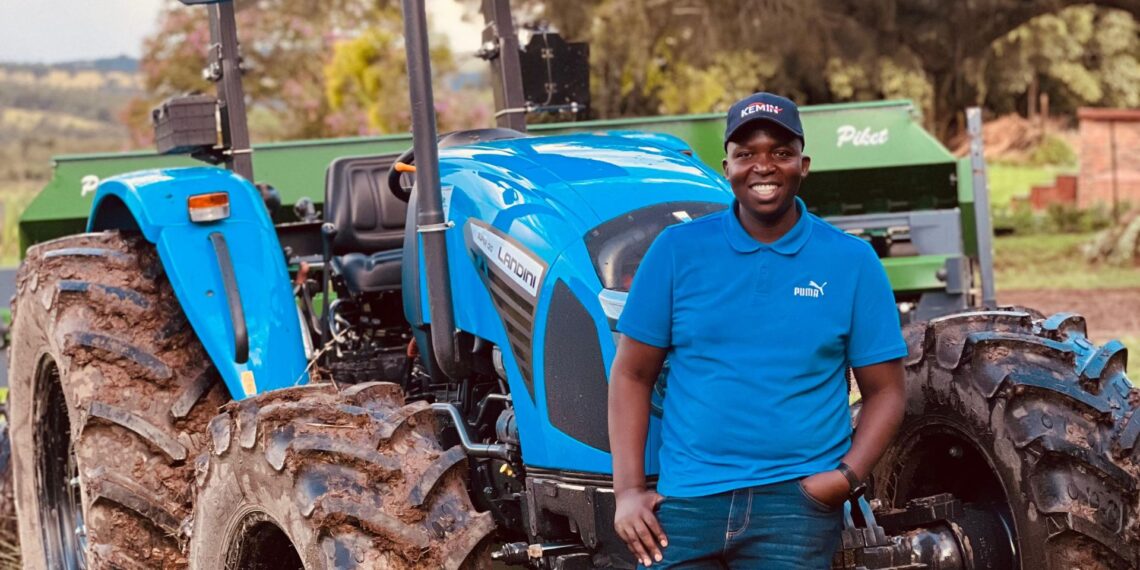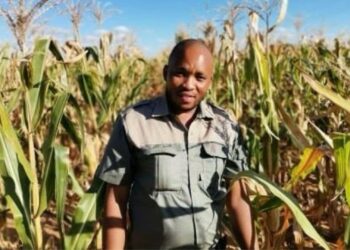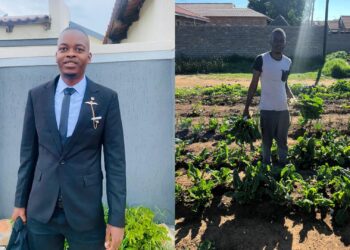Tshilidzi Matshidzula’s remarkable rise in the dairy industry proves that ambition knows no bounds. Starting with a dream in Limpopo, he now manages a significant dairy operation in the Eastern Cape. His philosophy, comparing dairy to Formula One, emphasises the need for constant innovation.
Based in Stutterheim, Eastern Cape, Matshidzula’s herd, which includes young animals, is sitting at 2 654. He aims to boost that by another 30% in just a year. Ask him how he’s come this far, and he’ll tell you it’s all in the details.
“Attention to detail among other contributors is what got us where we are today.”
“Dairy, in many ways, is like Formula One sport. The team that is competing for a championship today can easily find itself at the bottom of the grid following season if it does not innovate fast enough,” he says.

Farm manager at 19
Growing up in Thohoyandou, Limpopo, Matshidzula once believed that farming was a profession reserved for people of a certain colour. However, life had other plans.
In 2004, he took his first step toward changing that narrative, completing a diploma in animal production at Tshwane University of Technology. Armed with vision and purpose, he went on to earn a BTech degree in agricultural management from Unisa.
Just three years later, at only 19, he became a farm manager at Little Barnet in the Eastern Cape, proving that ambition knows no colour.
Today, he and his wife, Adivaro, operate across two farms, namely a newly acquired farm in Stutterheim and a dairy farm in Alexandria, where they have a 20% shareholding.
Initially, he focused on heifer rearing and winter silage production to support the adjacent dairy farm. However, he is now expanding his vision to develop his farm into a fully operational dairy and irrigation infrastructure.
Related stories

Making smart breed choices
Matshidzula’s journey has been powered by key support. In 2023, with funding from Land Bank’s blended finance scheme, he secured a 357-hectare farm in Stutterheim — an essential step toward realising his long-term vision of full farm ownership and development. Matshidzula also secured water rights for irrigation, and he obtained further funding to purchase the necessary irrigation systems.
When it comes to his breed selection, he does not believe that there is a bad dairy breed, but rather all comes down to preference and breeding objective.
“In our case, we opted for crossbreed Jersey and Holstein, leaning more towards Jersey. At this point, time has proven that this is the type of cow that is better suited to our pasture-based production system, which is all about maximum pasture harvesting.
“This is not to say other breeds cannot do the job, however, down in the coast crossbreeds have a bit of an edge over other breeds, considering it still gives you a fair amount of milk during dry time when you have to feed expensive feed.
“It is also important to know that the results or outcome on performance will vary from farm to farm depending on the management,” Matshidzula says.
Highs and lows of dairy farming
Despite his success, Matshidzula faces challenges typical of growing farms.
“In this industry, things can go wrong very quickly, and over the years I have experienced many highs and lows,” he says.
Like the drought they experienced in 2008 on the Alexandria Coast. At the time, their business was not even a year old, which meant that they had no cash reserves that could help them navigate such a difficult time.
“Also, we were still very much in our infancy phase, which made it difficult to borrow money or acquire feed on credit,’ Matshidzula says.
While they were still dealing with that intense drought, they were hit by a bad gall sickness disease outbreak, which resulted in high stock losses.
“What saved us was 28mm of rain that came down and got our grass growing again. If it wasn’t because of that rain, the plan was to shut down the operation in two weeks’ time,” he says.

Never stop learning
Today, Matshidzula defines success as being able to build something that lasts. For him, dairy in its nature is a long-term business.
“For you to see or get a full reward of today’s decisions, you have to think long term; therefore, the plan should be to build a business that will leave long after you and also leave a positive legacy in the community that you operate within,” he advises.
Farming is probably the most rewarding way of making money, adds Matshidzula. With dairy, he gets to be a jack of all trades. “When I grew up, I wanted to be a civil engineer or a doctor, and I also have a high passion for people development.
“Today, I get to practice all those things within my farm boundaries, and that’s what I love the most about this industry. In addition to all that, you’re producing wonderful products that are nourishing the world.”
In addition to his on-farm activities, Matshidzula is involved in several influential agricultural bodies where he continues to learn from the best in the industry.
Matshidzula says he not only wants to be a successful farmer but also a role model for others who aspire to build a legacy in agriculture. His advice to farmers is to set high standards and protect their values.
“I demand 120% from myself and everyone around me across all key profit drivers,” he says.
“We have to constantly aim to perfect what we do and improve all the time, and that has become our culture and core value. I do not work with anyone who doesn’t support our values and culture.”
READ NEXT: Bonsmara, beekeeping, and beyond! Sepeng’s vision grows
Get Stories of Change: Inspirational stories from the people that feed Mzansi.
















